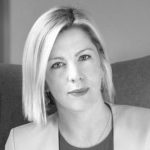“Pure and unadulterated socialism”. Against the backdrop of the Cold War, this was Milton Friedman’s withering put-down of discussion of the ‘social responsibilities’ of businesses in 1970. Fast forward to today, and ESG investing has gone mainstream.
As shareholders, we are accustomed to occupying pole position in the minds of CEOs and the boardrooms that govern businesses. In August, nearly 200 such CEOs at some of America’s largest firms announced a shift in focus to all stakeholders; customers, employees, suppliers, communities, the environment and shareholders. This is a welcome change.
The announcement was light on detail, and curiously failed to mention executive pay. Cynicism is natural. However, the CEOs are merely responding to a broader change in mindset, backed by investors and to some extent customers too, pushing these issues to the top of the agenda. The good ship ESG is sailing, and they want to be on board.
Sharing the top of the podium doesn’t mean shareholders suffer. In the British spy drama Spooks a character notes, “…you can do good or you can do well; sooner or later they make you choose”. Plenty of studies now show that doing the right thing is also good for business. Domino’s Pizza launched a project in the U.S. last year called Paving for Pizza. “Bad roads shouldn’t happen to good pizza”. Customers are asked to nominate particularly egregious potholes which Domino’s then fills. With branded cement, naturally. A smooth journey for your eight slices of ham and pineapple, and the resulting publicity doesn’t hurt the bottom line either!
Avery Dennison, the global manufacturer of labels we bought in early 2019, has an exclusive contract to provide the English Premier League with the 15 million numbers and names that adorn its official football shirts. They won this contract thanks to both superior technology and an ability to demonstrate sustainability. The factory where Harry Kane’s no.10 will be made, sits in the town of Gaupne, in Norway. Above Gaupne is the Jostedal glacier and hydropower plant which powers Avery’s manufacturing facility with green energy. Numbers are printed with water-based ink, which is better for the environment.

Businesses not ‘on board’ leave themselves exposed to quantifiable risks like regulation and fines, or to the ceding of market share to those with a clear vision and purpose.
Sometimes these risks will present themselves abruptly.One of the fastest growing sectors in the mobile era has been the rise of ride-hailing apps such as Uber and Lyft. A key element of their business model has been the classification of drivers as contractors, not employees.
The ‘gig’ economy, as this has become known, has both detractors and supporters. In September, the Senate in California approved a bill designed to require Uber and others to treat all contractors as employees. By some estimates this will increase their costs by 20-30%.
An external analyst recently lamented to us that her experience under cover with a British retailer had left her convinced that culture was the single most important determinant of success. Her lament? This cannot be modelled. Our approach has always placed a qualitative assessment of a company (the size of its opportunity, the strength of its moat, the effectiveness of its management team to capture these) on a par with ‘the numbers’. We can do this because we are focused investors, holding some 25-40 equities. We would be putting your capital at risk if we didn’t.
Investing during a ‘crisis of capitalism’
Our quest for clients is for real returns, first protecting your wealth against inflation, and then growing the purchasing power of your capital on a rolling five-year view. Companies that look holistically at the risks to their business models stand themselves in good stead.
There is a link between the past decade of low interest rates and the soul-searching going on in boardrooms. One key criticism of the ‘emergency’ measures put in place following the global financial crisis has been that low interest rates have inflated asset prices. This benefits asset owners, whilst incomes have not risen nearly so quickly. A second, related, criticism is that companies have taken advantage of low interest rates to borrow more, and have then used a large portion of this to buy back shares, boosting the earnings per share (EPS) value that CEO pay is frequently based on. The self-serving nature of this is not lost on the public at large: over the past 40 years the average CEO’s pay in the US has increased by an inflation-adjusted 940% vs just 12% for the average private sector worker.
The interplay between the resultant sense of inequality and politics can be seen in the rising success of anti-establishment, or ‘populist’, parties across developed markets. That this is happening during a period of decent growth should concern us.
In Hong Kong, interviews with young, pro-democracy demonstrators reveal a broader list of concerns than the extradition bill that lit the touch paper: freedom of speech and thought alongside unaffordable housing and career insecurity.
Our portfolios have been clear beneficiaries of the rise in equity and fixed income prices. At the end of August, the amount of global debt offering a negative yield hit a(nother) record of $17 trillion. Might this have marked the peak? Those who predicted that bond prices wouldcontinue to rise have profited handsomely. We have a very simple problem with this approach: if you purchase a bond with a negative yield, a profitable ‘exit’ depends entirely on another investor buying it from you at an even more negative yield. This is known as the greater fool theory.
In equities, we rely on our valuation discipline to temper the animal spirits. When valuations look full, we will hold cash, rather than ‘rotating’ to out of favour stocks. Hence our cash levels are higher than usual today, reflecting fair valuations on many of our preferred equity holdings, and a lack of margin of safety in potential targets. We remain firmly wedded to our philosophy of not trying to time markets. Few do it well consistently.
Reassuringly, our analysis shows that the bulk of the return we have generated in equities has come from growth.
The companies we own typically grow sales and earnings faster than the average company, converting more of these earnings to free cash flow. This is a direct and deliberate result of our approach to stock selection, which is to identify structurally growing companies. All savers face a highly predictable and durable problem (inflation) so it seems common sense to us to invest in predictable and durable companies.
MasterCard is one such example. The business continues to benefit from the cash to card conversion. Cards overtook cash payments in the UK for the first time in 2018, in large part due to the phenomenal growth rate in contactless card payments and payments using mobile phones. In the vast US market contactless cards are only being rolled out at scale this year, driving more and more payments over MasterCard’s ubiquitous network.
Holding cash requires patience and allows us to be opportunistic. We are aware that there is a veritable chocolate box of potential risks on the horizon. Friction between the US and China has spilled over into a trade war, as discussed in the past. This has brought the share prices of some high-quality businesses back into attractive territory for the long-term investor.
One such company is Kuehne + Nagel, the world’s second largest global freight forwarder. Founded in 1890, Kuehne + Nagel provides a critical service to companies trying to navigate the spaghetti junction of trade routes, customs arrangements, taxes and tariffs that has grown as part of our globalised world. Freight forwarding is ripe for digital disruption with manual forms and even faxes still used to send shipping documents. A sea-freight container is considered on time if it arrives within a 72-hour window! We believe it will be the scale players like Kuehne that will win, as their deep pockets and global scope stand them apart from smaller peers.
We have continued to carefully expand our investment team with the arrival of two new investment managers, Terry Coles and Sam Cotterell. Both are experienced investors with long track records of focused, equity-based investing. We are already benefitting from the different questions and perspectives they have brought to our team. We look forward to Chiyo Rimington joining us in November.
Time will reveal whether our assessment of the quality of the businesses we own is sound. Full integration of environmental, social and governance factors lends itself naturally to a long-term approach and focusing on sustainability in the broadest possible sense shouldn’t be scary. We don’t have to choose between doing good and doing well.
 Catriona Hoare
Catriona Hoare 